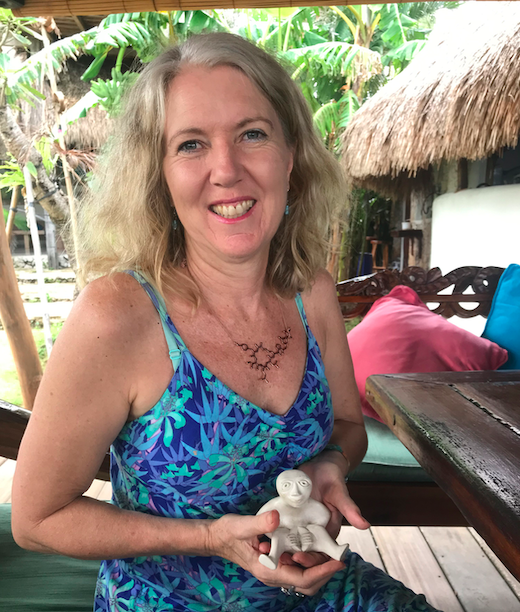In Part II of our six-part video series with Dr. Sarah Buckley, we weigh the benefits and risks of using an epidural for pain management in labor. (Click here if you missed last week’s video “Your Brain, Birth and Pleasure: Mother Nature’s Superb Design”)
Our naturally occurring hormones of labor also act as pain relievers, boost our energy for birth, and provide us with feeling of love and bonding.
Together with Dr. Buckley we discuss how these hormones work during birth and the ways in which an epidural can disrupt our hormones. We also provide you with some suggestions and ideas for pain relief that do not include epidural anesthesia.
We do want to honor those that chose to have an epidural. No one should ever suffer in birth and sometimes an epidural is the right choice.
However, knowing all of the benefits and risks, will help you weigh whether an epidural is right for you.
Watch below to learn more
Labor Pain Prevention – Weighing Epidural Options
It is important to consider the difference between being asked if you would like an epidural versus when you would like it. Epidurals can interfere with the oxytocin feedback loop which connects the brain and womb during labor. Pleasure and reward centers may not have the same responses with synthetic pain relief compared to more natural options. Learn about the benefits and risks of epidurals as well as your options to reduce pain including having a supportive birth team, a doula, freedom of movement, kissing, masturbation and incorporating pleasure into your birth.
About Dr. Buckley

Sarah Buckley is a New-Zealand-trained GP/family physician with qualifications in GP-obstetrics and family planning. She is the mother of four home-born children, and currently combines motherhood with her work as a writer on pregnancy, birth, and parenting.
She is also a PhD candidate at the University of Queensland,, where her research is focused on oxytocin and the autonomic nervous system in labour and birth, and the impacts of interventions.
Dr Buckley’s work critiques current practices in pregnancy, birth, and parenting from the widest possible perspectives, including scientific, anthropological, cross-cultural, psychological, and personal. She encourages us to be fully informed in our decision-making; to listen to our hearts and our intuition; and to claim our rightful role as the real experts in our bodies and our children.
Her bestselling book Gentle Birth, Gentle Mothering: A Doctor’s Guide to Natural Childbirth and Gentle Early Parenting Choices, published by Celestial Arts/PenguinRandomHouse (US, 2009), builds on her acclaimed first edition, published in Australia as Gentle Birth, Gentle Mothering: The Wisdom and Science of Gentle Choices in Pregnancy, Birth, and Parenting (One Moon Press, Brisbane, 2005, available as ebook here ).
Dr Buckley has an ongoing interest in the hormones of labour and birth, and this has culminated in her groundbreaking report Hormonal Physiology of Childbearing (2015 Childbirth Connection, a program of the National Partnership for Women and Families). This report, available for free online, has been described as “…one of the most revolutionary and influential publications on maternity and newborn care ever issued.”
Learn more about Dr. Buckley – https://sarahbuckley.com/

